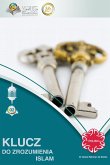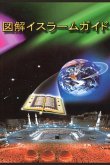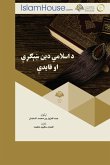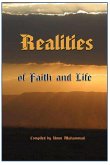Traditional knowledge of revelation requires rehabilitation. For it was warped by exegesis that subordinates revelation to tradition, and uses tradition as a furqan over revelation rather than vice versa. The subordination of revelation to tradition is tantamount to a reversal of the relationship between revelation and tradition. Revelation was placed under the jurisdiction of tradition. Words of God were subordinated to the words of men. The subordination of revelation to tradition is reflected in the perception that tradition "judges" revelation. The subordination of revelation to tradition is also reflected in the perception that "revelation requires tradition more than tradition requires revelation." There was a paradigm shift from a revelation-centric paradigm to a tradition-centric paradigm. The re-orientation was triggered by the recording of traditions. Traditions were written down in defiance of the prohibition of "adding" to revelation in the Book of Allah. Traditions were also recorded in defiance of the prophet's prohibition of recording of his traditions. Persons that recorded the traditions disobeyed both Allah and Muhammad. As a result of the recording of traditions, the saying attributed to the prophet surpassed revelation. The turn to tradition was justified by the perception that tradition, too, is revelation. This resulted in the amalgamation of tradition and revelation. Tradition became indistinguishable from revelation. The fusion of tradition with revelation requires attention. The relationships of reason to revelation as well as the relationship of revelation and tradition require a reset. It is alleged that revelation requires an "explanation" and a "completion" by tradition. This is based on perceiving the Book of Allah as in parts "unclear" and "insufficiently detailed." These perceptions defy the Book of Allah. For the Book assures us that it is "clear" and "detailed." Thus, recourse to tradition to "explain" and "complete" revelation rests upon a rejection of verses that teach that the Book of Allah is "clear" and "fully detailed." Recourse to traditions to "clarify" and "detail" the Book of Allah is rests upon a rejection of the perfection of the Book of Allah. It is based upon treating the Book of Allah as if it were a product of a person. It is based on treating Allah as if He were a "fallible" being. It is based on anthropomorphism. The perception of revelation as "unclear" and "insufficiently detailed" is problematic. It reflects a flawed perception of the relationship between revelation and tradition. The perception is based upon the treatment of tradition as an "equal" of revelation. Treating tradition as "equal" to revelation resulted in the fusion of revelation and tradition. This fusion produced confusion. Many are unable to tell the difference between the words of Allah and the words of men. They treat them as equally authoritative. At times, they treat the words of men as having a greater authority than the words of Allah. This is clear in the perception that tradition possesses the authority to "abrogate" parts of revelation. The amalgamation of revelation and tradition, however, is problematic. Revelation provides no reason for treating tradition as revelation, nor for treating tradition and revelation as "equals." It does not provide justification for a fusion of tradition and revelation. Renewal requires resetting the relationship of revelation and tradition. It requires restoring revelation to its pre-eminence in relation to tradition. Renewal also requires the rehabilitation of reason. This requires the use of reason in acquiring knowledge. For neither revelation nor tradition can be understood without the use of reason. While the relationship between revelation and tradition requires attention, the relationship between reason and revelation also merits attention.
Bitte wählen Sie Ihr Anliegen aus.
Rechnungen
Retourenschein anfordern
Bestellstatus
Storno








